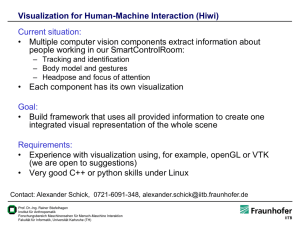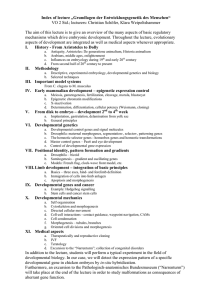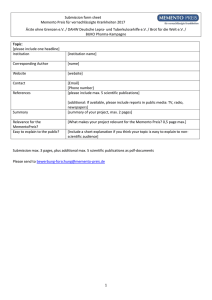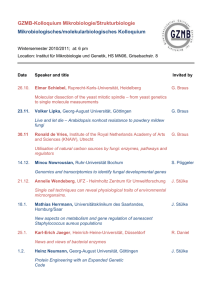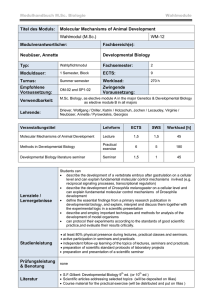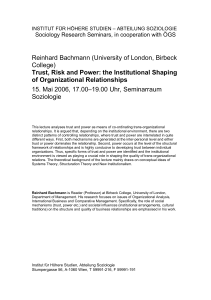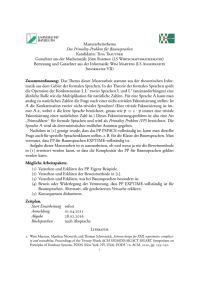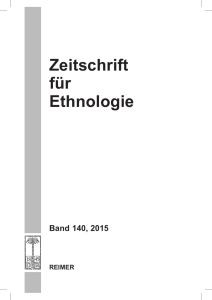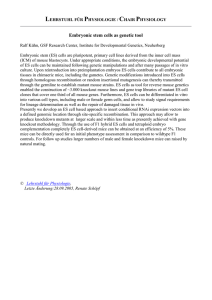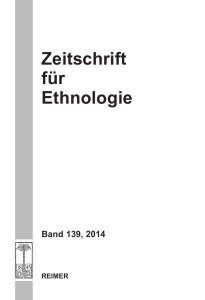Project Description European Plant Embryology - gepris
Werbung
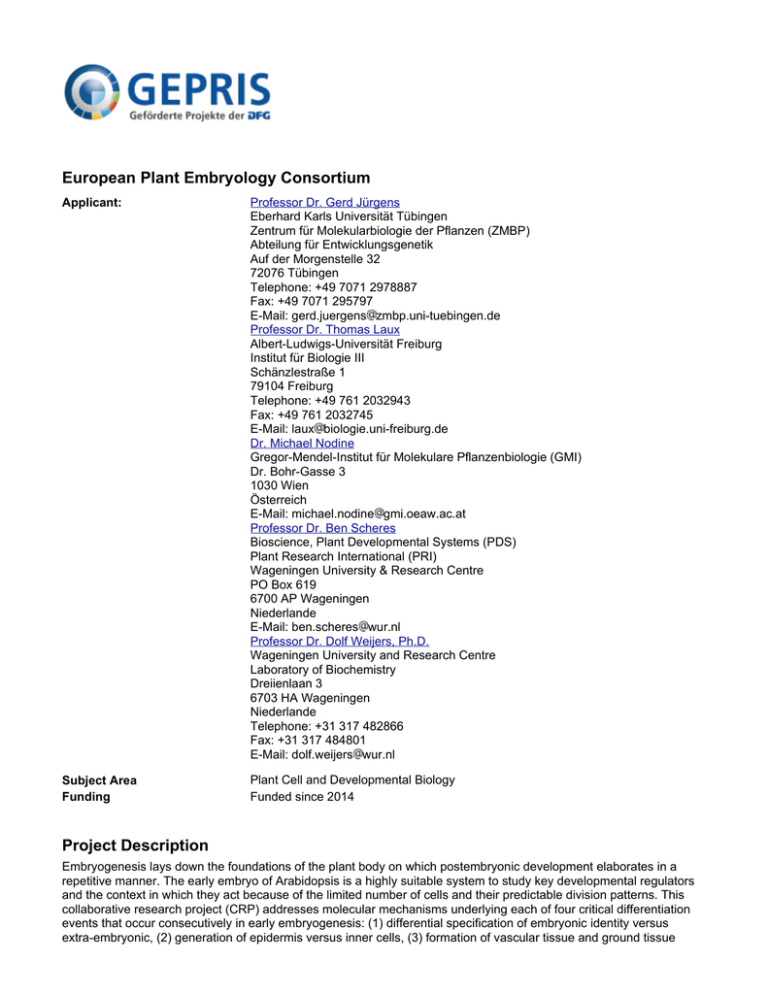
European Plant Embryology Consortium Applicant: Professor Dr. Gerd Jürgens Eberhard Karls Universität Tübingen Zentrum für Molekularbiologie der Pflanzen (ZMBP) Abteilung für Entwicklungsgenetik Auf der Morgenstelle 32 72076 Tübingen Telephone: +49 7071 2978887 Fax: +49 7071 295797 E-Mail: gerd.juergens zmbp.uni-tuebingen.de Professor Dr. Thomas Laux Albert-Ludwigs-Universität Freiburg Institut für Biologie III Schänzlestraße 1 79104 Freiburg Telephone: +49 761 2032943 Fax: +49 761 2032745 E-Mail: laux biologie.uni-freiburg.de Dr. Michael Nodine Gregor-Mendel-Institut für Molekulare Pflanzenbiologie (GMI) Dr. Bohr-Gasse 3 1030 Wien Österreich E-Mail: michael.nodine gmi.oeaw.ac.at Professor Dr. Ben Scheres Bioscience, Plant Developmental Systems (PDS) Plant Research International (PRI) Wageningen University & Research Centre PO Box 619 6700 AP Wageningen Niederlande E-Mail: ben.scheres wur.nl Professor Dr. Dolf Weijers, Ph.D. Wageningen University and Research Centre Laboratory of Biochemistry Dreiienlaan 3 6703 HA Wageningen Niederlande Telephone: +31 317 482866 Fax: +31 317 484801 E-Mail: dolf.weijers wur.nl Subject Area Funding Plant Cell and Developmental Biology Funded since 2014 Project Description Embryogenesis lays down the foundations of the plant body on which postembryonic development elaborates in a repetitive manner. The early embryo of Arabidopsis is a highly suitable system to study key developmental regulators and the context in which they act because of the limited number of cells and their predictable division patterns. This collaborative research project (CRP) addresses molecular mechanisms underlying each of four critical differentiation events that occur consecutively in early embryogenesis: (1) differential specification of embryonic identity versus extra-embryonic, (2) generation of epidermis versus inner cells, (3) formation of vascular tissue and ground tissue precursors, and (4) specification of shoot and root identity including their respective stem-cell system. We will use previously identified key regulators of these events as starting points and identify the context in which they act. We will also perform genome-wide approaches, including transcript profiling in mutant embryos and chromatin immunoprecipitation followed by next-generation sequencing to identify binding sites and biologically meaningful target genes of key transcriptional regulators. Furthermore, we will employ independent cell-type specific transcriptome profiling approaches to help define the global molecular landscape of these key differentiation events. Finally, we will characterize microRNA-mediated post-transcriptional control as a novel layer of regulation in early embryogenesis. This collaboration will identify regulatory frameworks governing embryonic cell differentiation events and interactions between them. In addition to the advanced genome-wide approaches, genetic analysis as well as 3Dand live embryo imaging will be used to define the role of newly identified regulators in early embryonic patterning.The consortium comprises five international partners each with a strong record in studying developmental decisions in the embryo. The partner labs have been instrumental in identifying the key developmental regulators that form the starting point of this CRP. While sharing a strong interest in understanding early plant embryogenesis, all partners study a different key step and have complementary methodological expertise. Findings, materials and technologies will be shared among the partners to create a common basis for dissecting the developmental decisions. Coordination of individual efforts is critical to prevent duplication of work and will enable identification of links between developmental steps. This collaborative project will help to organize and consolidate a competitive European research base for studying the most fundamental building blocks of plant development. This will be the only way forward in generating a comprehensive understanding of the earliest formative events in plant life, and will provide the much-needed basis for rational applications in plant breeding, propagation and biotechnology. DFG Programme International Connection Research Grants Austria, Netherlands GEPRIS is a project of the Deutsche Forschungsgemeinschaft (DFG) Contact GEPRIS at http://www.dfg.de/gepris (c) 1999 - 2017 Deutsche Forschungsgemeinschaft (http://www.dfg.de)
